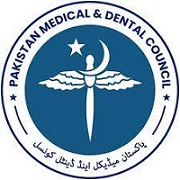SKIN, SOFT TISSUE INFECTIONS AND THEIR MICROBIOLOGICAL PROFILE FROM A TERTIARY CARE HOSPITAL
Abstract
Background: Skin and soft tissue infections (SSTIs) are considered as diverse group of infections which may vary in microbial etiology and clinical presentation and ranges from simple, uncomplicated infections to severe, complicated picture. Causative organisms with antimicrobial resistance may worsen the situation.
Objectives: The aim of present study was to check the frequency and antibiotic sensitivity pattern of bacterial isolates causing SSTIs.
Methods: A retrospective study performed over a period of 3 years. Pus and wound samples were collected and were processed by using standard microbiological procedures. Confirmation of bacterial species was done by different biochemical tests. Antimicrobial susceptibility pattern (AST) was checked on Mueller-Hinton (MH) agar by disc-diffusion method according to CLSI guidelines.
Results: Among 2345 total samples, 63.1% were cultured positive. Percentage of gram-negative bacteria was 51.3% while 48.7& were gram positive. E. coli (33.7%) was most common organism among gram-negative and S. aureus (34.5%) was more prevalent among gram positive organisms. Linezolid and glycopeptides showed excellent susceptibility against gram-positive organism, while maximum resistance was observed against Co-trimoxazole and Fluoroquinolones among gram-negative isolates.
Conclusion: Changing trend of bacterial spectrum causing SSTIs along with increasing antimicrobial resistance becomes a serious health problem which limits the treatment options for such infections.






